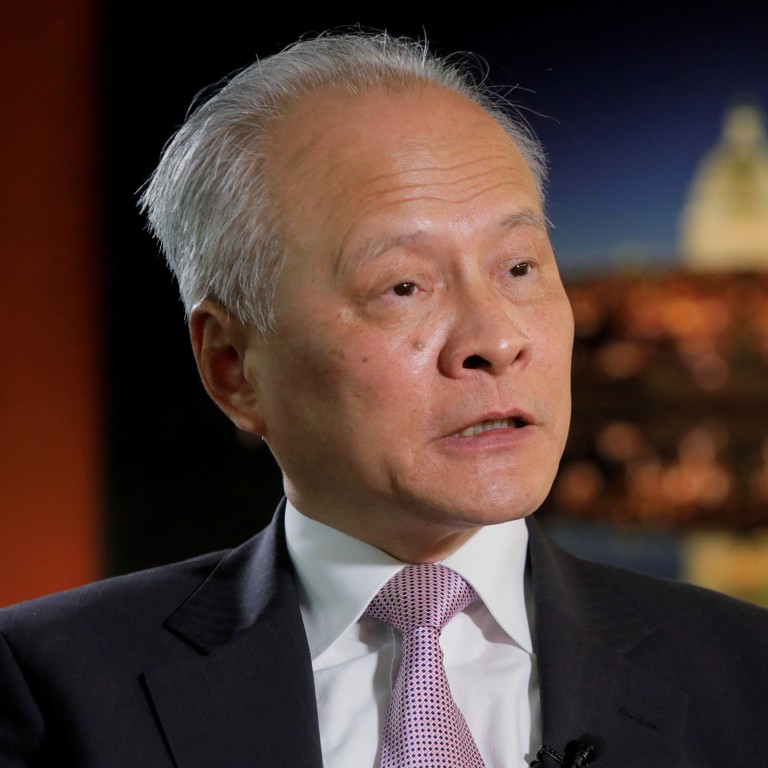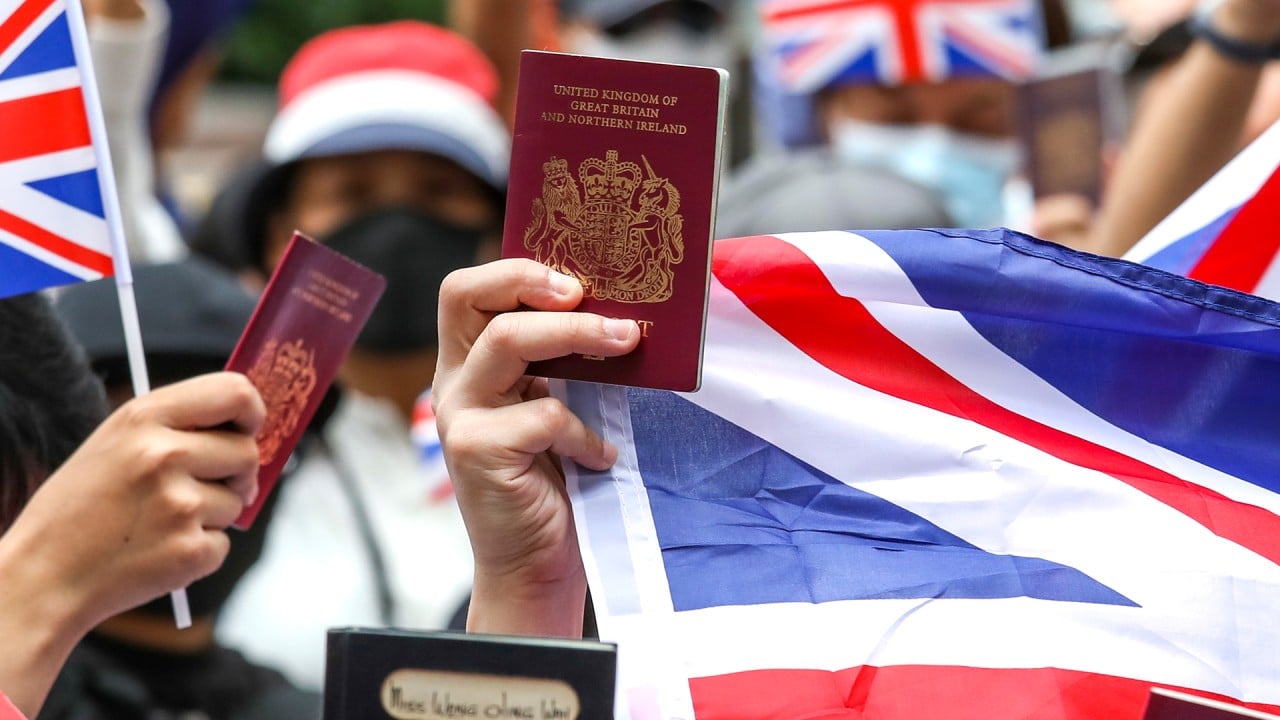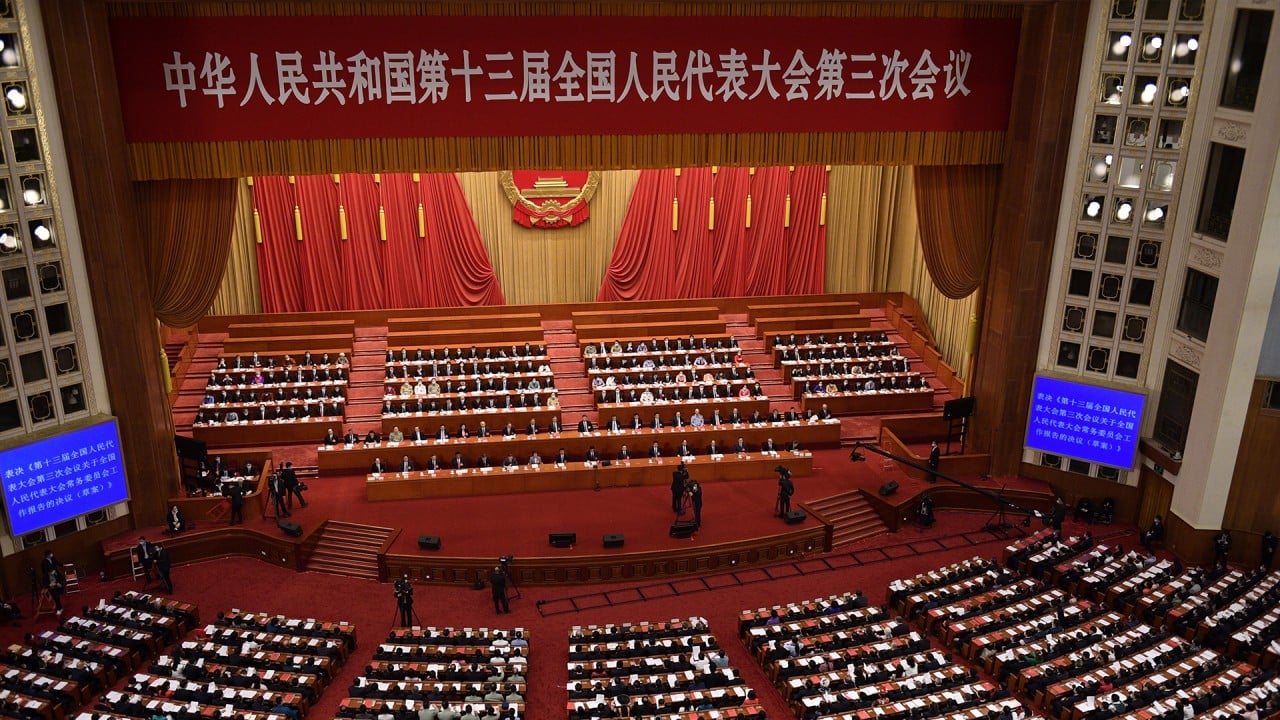
Beijing has reason to be emboldened by response to Hong Kong national security law plan, US observers say
- China’s leaders are probably thinking West’s reaction was ‘a lot of bark and little bite’, analyst says
- China’s ambassador to the United States Cui Tiankai says Hong Kong tried for 23 years to enact security laws but opposition sought to ‘strangle them’, prompting Beijing to act
“Beijing is probably thinking, a lot of bark and little bite,” said Andrew Coflan, a China analyst with the Eurasia Group consultancy.
“It would almost be better if he didn’t say anything until he had specific measures,” Coflan said. “The biggest difficulty is the uncertainty.”
In a Bloomberg editorial on Saturday, China’s ambassador to the United States Cui Tiankai said Beijing chose to enact the national security law in Hong Kong after demonstrators became increasingly aggressive and “external forces” put the nation at risk.
“Protesters have time and again instigated violence and clamoured for Hong Kong’s ‘independence’, crossing a red line for the central government,” he said.
“At the same time, external forces have increasingly interfered in Hong Kong affairs without scruple. Because of this, Hong Kong is in disarray.”
Economists fear for Hong Kong’s future if it loses US special status
Cui said the Hong Kong government tried for 23 years to enact security laws but the opposition had sought to “strangle them”, prompting Beijing to act.
Hong Kong would retain a “high degree of autonomy”, and residents need not worry as long as they avoided “splitting the country, subverting the government, committing terrorist activities and externally meddling”, he said.
Driving the decision, they said, was concern that the protracted protests made it look weak domestically and that unrest could spread into southern China despite successful efforts to portray many Hongkongers as ungrateful and unpatriotic.

01:54
Hongkongers with BN(O) passports could be eligible for UK citizenship if China imposes security law
Also in its calculations, analysts said, was the likelihood that the Covid-19 crisis would keep some percentage of Hong Kong protesters off the streets given fears of infection and that the global health crisis would keep some number of foreign nations distracted.
“If you’re pretty sure you have to take this step anyways, from their perspective, you might as well do it now,” said Joshua Eisenman, an associate professor at the University of Notre Dame’s Keough School of Global Affairs in Indiana. “You want to pay the least cost for it that you can.”
US analysts said Beijing and the Hong Kong government were not able – or had not spent the time – to address underlying concerns of residents in the city, which has one of the world’s largest rich-poor gaps.
“The decision by Beijing to impose a national security law to coerce obedience by the people of Hong Kong is a stark admission of the failure of their policy there,” said Daniel Russel, vice-president of the Asia Society Policy Institute in New York. “But it is also a failure of US policy.”
Russel, former president Barack Obama’s point person on Asian affairs, said it was likely China’s leaders had calculated that Trump’s penchant for acting alone, his attack on the World Health Organisation in the middle of a global pandemic and his divisive domestic policies would work in their favour.
“The Chinese government is no longer worried about what Washington thinks, nor is it afraid that the Trump administration can muster a unified international response,” he said.
US-China tensions set to worsen as moderates lose out to hardliners, observers say
“I just don’t believe that much of what happens in Washington or London is going to matter that much to Beijing’s Hong Kong policy,” said Eisenman, a former analyst with the US-China Economic and Security Review Commission.
“We’re all in reactive mode. Western leaders can huff and puff, but Hong Kong is China’s territory.”

02:33
China’s top legislature approves national security bill for Hong Kong
All else being equal, Beijing would rather that Hong Kong maintained its special US economic and trade status, but the financial capital has become less important to China’s economy. At the time of the British handover in 1997, Hong Kong accounted for about 18 per cent of China’s total GDP, a figure that is now below 4 per cent, according to World Bank figures.
And having Hong Kong more on a par with other Chinese cities offers certain political advantages, analysts said. Beijing’s tougher stance toward Hong Kong is popular on the mainland, which has tended to view the city’s residents as spoiled and unappreciative of China’s largesse, analysts said.
“This decision enjoys extensive support from Chinese people, including in Hong Kong, many of whom believe it should have been done long before,” Cui said in his article.
Coming further into Beijing’s orbit will also leave the city and its people garnering less international attention, overseas political support or economic ties.
“This is turning Hong Kong into just another city, and that’s exactly what Beijing wanted,” Sun Yun, director of the China programme at the Stimson Centre, a think tank in Washington, said at a National Committee on US China Relations event.
“I suspect in Beijing’s calculation the economic cost of the removal of the special status of Hong Kong will be carried by many, but the political benefits will be enjoyed by Beijing,” she said.
American firms ‘review Hong Kong future’ with US to cut city’s trade privileges
That is not to suggest Beijing will not pay some price for its decision to enact the security law, analysts said.
As well as any targeted sanctions Trump hands down, the move has further angered the US Congress, which is already considering dozens of anti-China bills. It also could add momentum to US plaintiffs claiming damages suffered because of Beijing’s delay in stemming the spread of the virus, lawsuits that rankle China.
Beijing’s tough stance also highlights to third countries working with China, including its Belt and Road Initiative, the “potential negative consequences of economic involvement with China”, said Terry Haines, an independent policy analyst and former Congressional staffer.
But these steps, and Thursday’s joint statement against the new security law signed by the US, Britain, Canada and Australia, ultimately are not giving Beijing too many sleepless nights, analysts said.
“It’s a lot of ink,” Eisenman said. “Does it make one Hongkonger more free? No. Does it change any of the other facts on the ground? Not really. It’s a nice sentiment, but it won't change Beijing's approach.”
Additional reporting by Jodi Xu Klein

